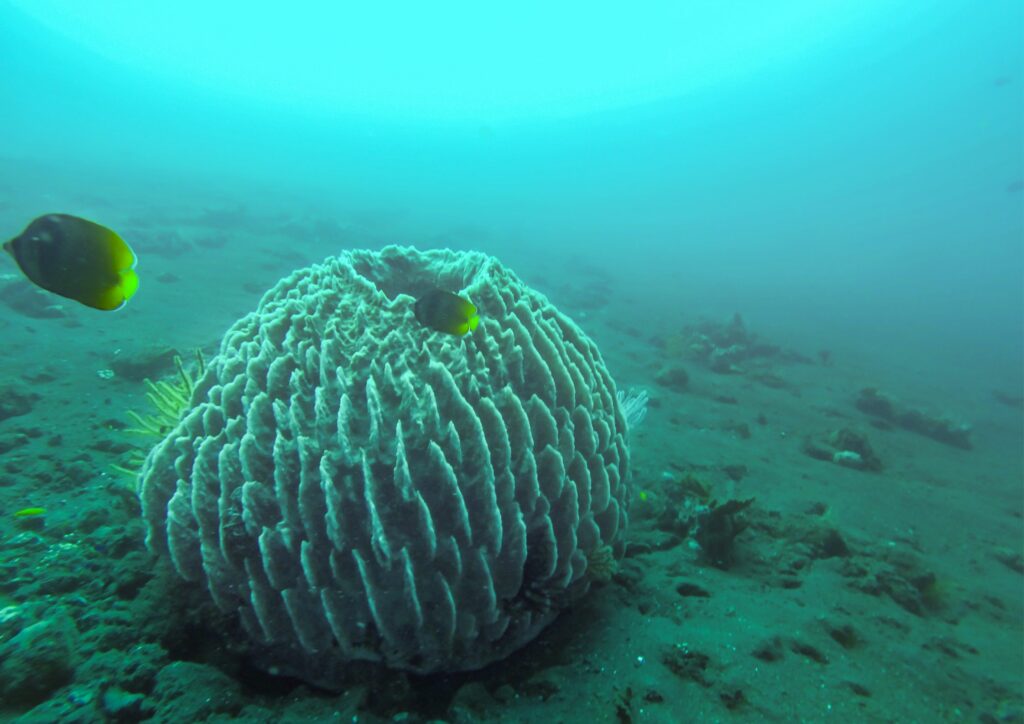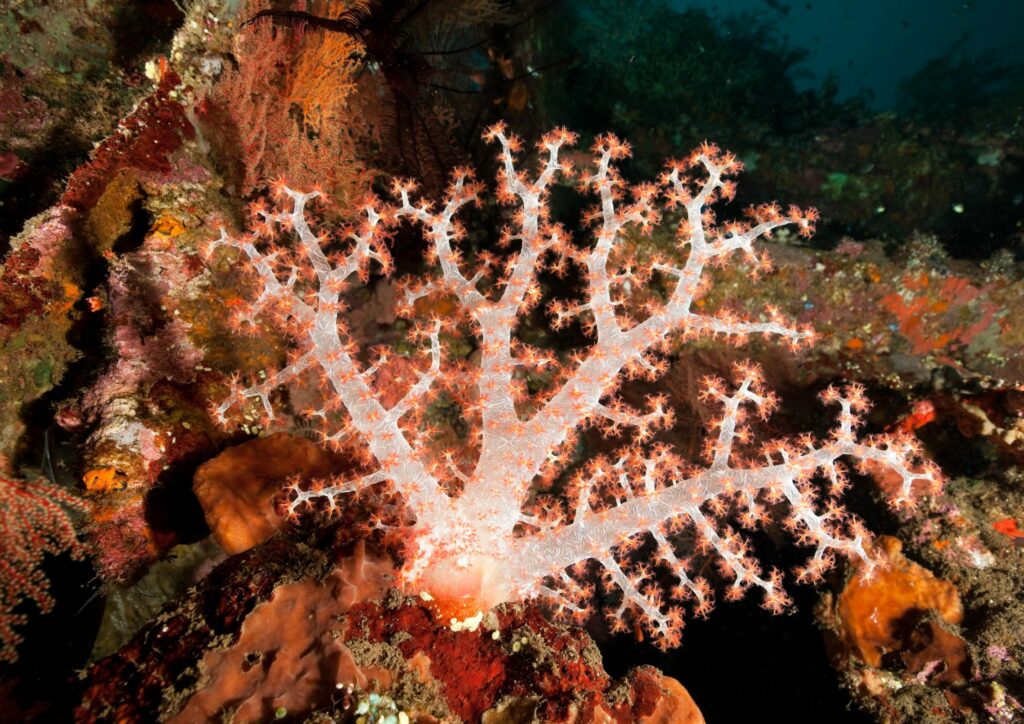Bali, an island paradise renowned for its stunning beaches and vibrant marine life, faces numerous environmental challenges threatening its coral reefs. With the increasing impact of illegal spear fishing, marine pollution, and climate change, the need for coral conservation has never been more critical. Sustainable diving practices not only allow visitors to explore the breathtaking underwater world but also play an essential role in preserving it. Initiatives such as coral conservation such as coral planting, mangrove cleaning, and beach clean-ups are vital for maintaining the health of these ecosystems. Together, we can ensure that future generations can enjoy the unparalleled beauty of Bali’s underwater treasure.
The Importance of Coral Reefs in Bali’s Ecosystem
Coral reefs are a vital component of Bali’s ecosystem, serving as the foundation for its rich marine biodiversity. These vibrant underwater landscapes provide habitat and food for countless marine species, including fish, crustaceans, and mollusks. Beyond their ecological significance, coral reefs play a crucial role in protecting coastal areas from erosion and storm damage. They also support local economies through tourism and fishing industries, making their conservation essential for both environmental and economic stability. However, threats such as illegal spear fishing, pollution, and climate change jeopardize these invaluable reefs, highlighting the urgent need for sustainable practices like coral planting and recycling initiatives.
Coral Planting Initiatives: Restoring Underwater Life

Coral conservation such as planting initiatives in Bali are essential for restoring the vibrant underwater ecosystems that support marine life. These programs involve community volunteers and divers who transplant coral fragments onto damaged reefs, helping to rejuvenate marine biodiversity. Additionally, educational workshops raise awareness about the importance of coral reefs and promote sustainable practices among local communities in coral conservation initiative. Through these efforts, participants learn to identify threats such as illegal spear fishing and the impacts of pollution. Engaging in such initiatives not only aids in restoring coral but also fosters a sense of responsibility among residents and tourists alike, contributing to the long-term health of Bali’s marine environment.
Mangrove Cleaning Projects: Protecting Coastal Habitats
Mangrove cleaning projects are vital for preserving the coastal habitats of Bali. These lush ecosystems provide essential protective barriers for marine life, including corals, from sedimentation and pollutants. Volunteers often engage in activities like removing trash and invasive species, which help restore the natural balance of these areas. By promoting healthy mangrove forests, we support not only biodiversity but also the welfare of local fishing communities. Clean mangroves aid in the continued growth and survival of coral reefs by stabilizing shorelines and enhancing water quality.
Sustainable Practices in Scuba Diving: What You Can Do
Sustainable practices in scuba diving are essential for preserving the underwater ecosystems of Bali, one of them is by doing coral conservation. As a diver, you can contribute significantly by participating in coral planting initiatives, where you help restore damaged reefs and enhance marine biodiversity. Additionally, engaging in activities like mangrove cleaning and beach clean-ups can help to reduce pollution and protect vital habitats for marine life. Furthermore, it’s crucial to advocate against illegal spear fishing, which can devastate coral ecosystems. By promoting recycling and minimizing waste, you ensure that less plastic ends up in the ocean, safeguarding marine creatures and their habitats. Every small effort counts towards a healthier ocean and a sustainable diving experience.
Combatting Illegal Spear Fishing: Community Efforts and Impact
Illegal spear fishing poses a significant threat to coral reefs in Bali, disrupting marine ecosystems and diminishing fish populations. In response, local communities have come together to combat this issue through awareness campaigns and organized beach cleanups. By educating fishermen about sustainable practices and the importance of protecting coral habitats, these initiatives aim to create a shift in mindset. Moreover, community-led patrols have been established to monitor illegal fishing activities and report violations. The collective efforts not only help to preserve the underwater environment but also foster a sense of unity among residents, bolstering their commitment to sustainable practices in their daily lives.
The Role of Recycling in Protecting Marine Environments
Recycling plays a pivotal role in protecting marine environments, particularly in regions like Bali where coral reefs are under constant threat from pollution. By reducing waste and ensuring materials such as plastics and metals are properly disposed of, we can diminish the harmful effects these items have on the ocean. For instance, engaging in local recycling initiatives not only helps keep beaches clean but also prevents marine life from ingesting or becoming entangled in debris. This proactive approach complements coral conservation such as coral planting and mangrove cleaning efforts, fostering a healthier ecosystem for underwater biodiversity.
Beach Clean-Up Campaigns: Engaging Locals and Tourists
Beach clean-up campaigns in Bali play a vital role in fostering community engagement and promoting environmental stewardship among locals and tourists alike. These initiatives not only focus on cleaning the beaches but also create awareness about the importance of maintaining pristine coastal environments. Participants often include local residents, dive shops, and eco-conscious travelers, uniting them in their shared goal of preserving Bali’s natural beauty.
By organizing regular clean-up events, the campaigns emphasize the detrimental impacts of coral conservation, to prevent pollution on coral reefs and marine life. Educational programs can also accompany these clean-ups, informing volunteers about the threats posed by illegal practices like spear fishing and the benefits of coral planting and mangrove cleaning efforts.
How Divers Can Contribute to Coral Conservation Efforts
Divers play a crucial role in the conservation of coral reefs in Bali. By participating in coral planting initiatives, divers can help restore damaged reefs, creating habitats for marine life and enhancing biodiversity. Moreover, divers can join organized activities focused on cleaning the beach and surrounding waters, contributing to a cleaner environment and reducing plastic pollution which adversely affects coral systems. Engaging in programs that address illegal spear fishing is also vital; divers can help raise awareness and promote sustainable fishing practices that protect marine ecosystems. By adopting responsible diving practices, such as minimizing physical contact with coral, divers can ensure that their impact on the underwater world is beneficial rather than harmful.
Taking Action for a Sustainable Future
In summary, the preservation of Bali’s coral conservation for the reefs and marine ecosystems is critical for maintaining the beauty and biodiversity of this tropical paradise. Engaging in responsible practices such as coral planting, mangrove cleaning, and respecting local regulations can significantly contribute to the health of these vital underwater habitats. By using eco-friendly diving techniques and participating in beach clean-ups, scuba divers and tourists alike can play a role in combating issues like illegal spear fishing and pollution, ensuring that future generations can experience Bali’s underwater wonders just as we do today.
Moreover, the collective effort of the Bali Diving community, along with the involvement of eco-conscious travelers, can foster a culture of sustainability that extends beyond just diving. Through initiatives focused on recycling and reducing waste, we can protect the island’s natural beauty and biodiversity. As we continue to raise awareness about these essential practices and support local organizations dedicated to coral conservation, we embrace our responsibility as stewards of this remarkable environment. Together, we can preserve this enchanting paradise for years to come.

I’m really impressed by the efforts being made to conserve coral reefs in Bali. As a diver, I’ve seen firsthand the devastating impact of pollution and overfishing on these ecosystems. It’s heartening to see so many initiatives underway to protect these vital habitats.
Thank you for sharing your experience as a diver and your concerns about the impact of pollution and overfishing on coral reefs in Bali. We’re glad to hear that you’re impressed by our efforts towards conservation. At Gill Divers, we believe that it’s crucial for all of us to take action in protecting these vital ecosystems. By participating in coral planting initiatives, mangrove cleaning projects, and beach clean-ups, we can make a significant difference. Additionally, promoting sustainable diving practices, such as minimizing physical contact with coral, can also contribute to the health of these underwater habitats. If you’re interested in getting involved or learning more about our conservation efforts, please feel free to reach out to us at [email protected] or call us at +65 6734 9373.
I completely agree with this post! As a local resident, I’ve seen the beauty of Bali’s coral reefs firsthand. It’s essential that we take action to protect these ecosystems for future generations.
Hi Faisal, thank you for sharing your perspective as a local resident! It’s great to hear that you’ve had the opportunity to experience the beauty of Bali’s coral reefs firsthand. We’re thrilled to hear that you agree with our post and are committed to taking action to protect these ecosystems for future generations. At Gill Divers, we believe that education and community engagement are key to promoting sustainable diving practices and preserving marine environments. By working together, we can make a positive impact on the health of Bali’s coral reefs. If you have any further questions or would like to get involved in our initiatives, please don’t hesitate to reach out to us at Tel: +65 6734 9373 or Email: [email protected]. We look forward to continuing this conversation and exploring ways we can work together to protect Bali’s coral reefs.
I’m so grateful to see this level of awareness and commitment to coral conservation in Bali. As a tourist, I’ve had the privilege of exploring these incredible ecosystems. It’s essential that we all do our part to protect them.
Dear Megan, thank you for sharing your thoughts on our blog post about coral conservation in Bali. We’re thrilled to hear that you’ve had the opportunity to explore these incredible ecosystems and that you’re committed to doing your part in protecting them. At Gill Divers, we believe that every small effort counts towards a healthier ocean and a sustainable diving experience. By participating in coral planting initiatives, mangrove cleaning projects, and beach clean-ups, divers like yourself can make a significant impact on preserving Bali’s marine environment. We encourage you to continue spreading awareness about the importance of coral conservation and to support local organizations dedicated to this cause. Thank you again for your passion and commitment to protecting our planet’s incredible underwater treasures.